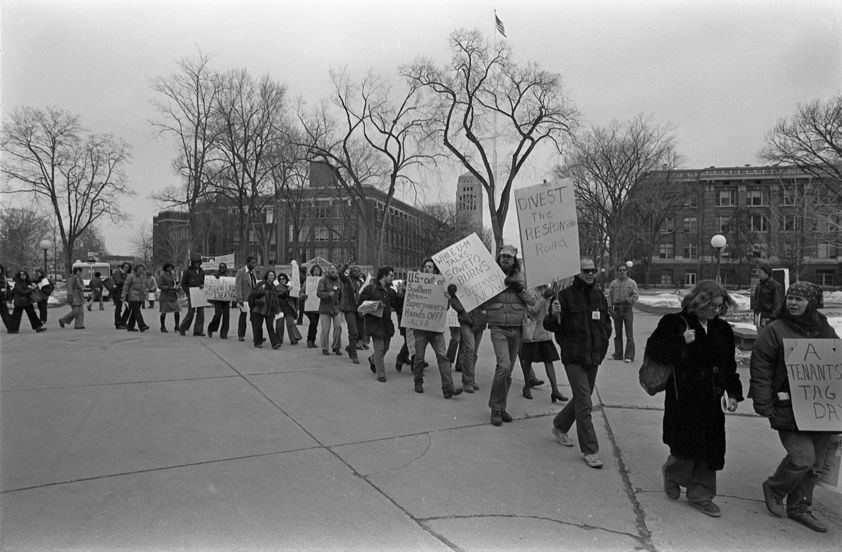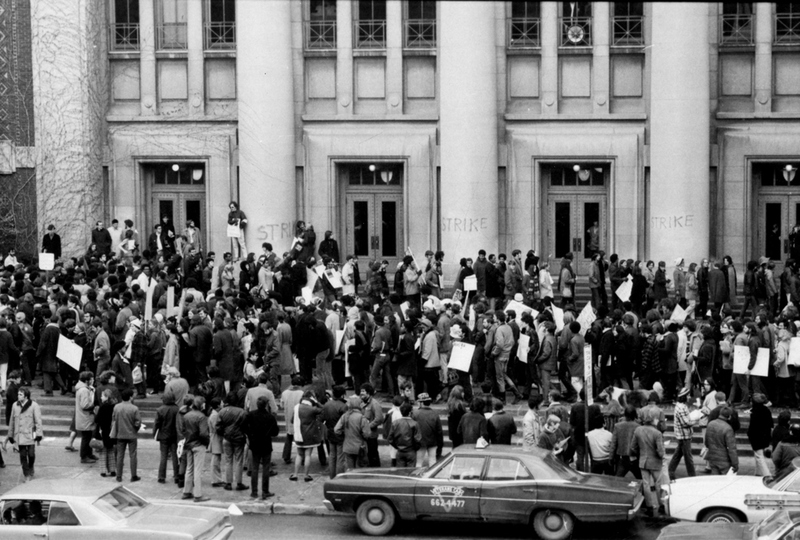Community organizing and activism is one of the six Pathways to Civic Engagement and Community Change by which students can contribute to communities to further the mission of U-M and exercise their power to create a better world.
It involves individual and especially collective action to influence or persuade others, and is a key element of a functioning democracy.
The Community Organizing and Activism Pathway encompasses a wide range of actions - from canvassing to protesting, from writing letters to staging demonstrations. Common forms of activism include:
- Communicating with decision-makers
- Planning or participating in a protest
- Speaking publicly
- And more!
University of Michigan students are regularly involved in community organizing and activism - the Multicultural Lounges, the presence of prayer rooms on campus, and the Spectrum Center are just some of the results of collective action, along with student support for national movements like Black Lives Matter and divestment from apartheid South Africa. Students also study activism and explore connections between activism and their academic disciplines.
Supporting Students' Civic Engagement though Community Organizing & Activism
- Learn about the legacy of student activism at University of Michigan by reading Michigan Daily's coverage of student organizing and activism on campus and exploring U-M's Inclusive History Project website.
-
Incorporate activities that help students connect to the Community Organizing & Activism Pathway into your courses and programs

Student protest demanding U-M and US divestment from apartheid South Africa, March 16, 1978. Source: The Michigan Daily Photo Archive, Bentley Historical Library, University of Michigan | Michigan in the World / History 497 exhibit

Black Action Movement protest in front of Hill Auditorium, March 20, 1970. Source: Michigan Library.
